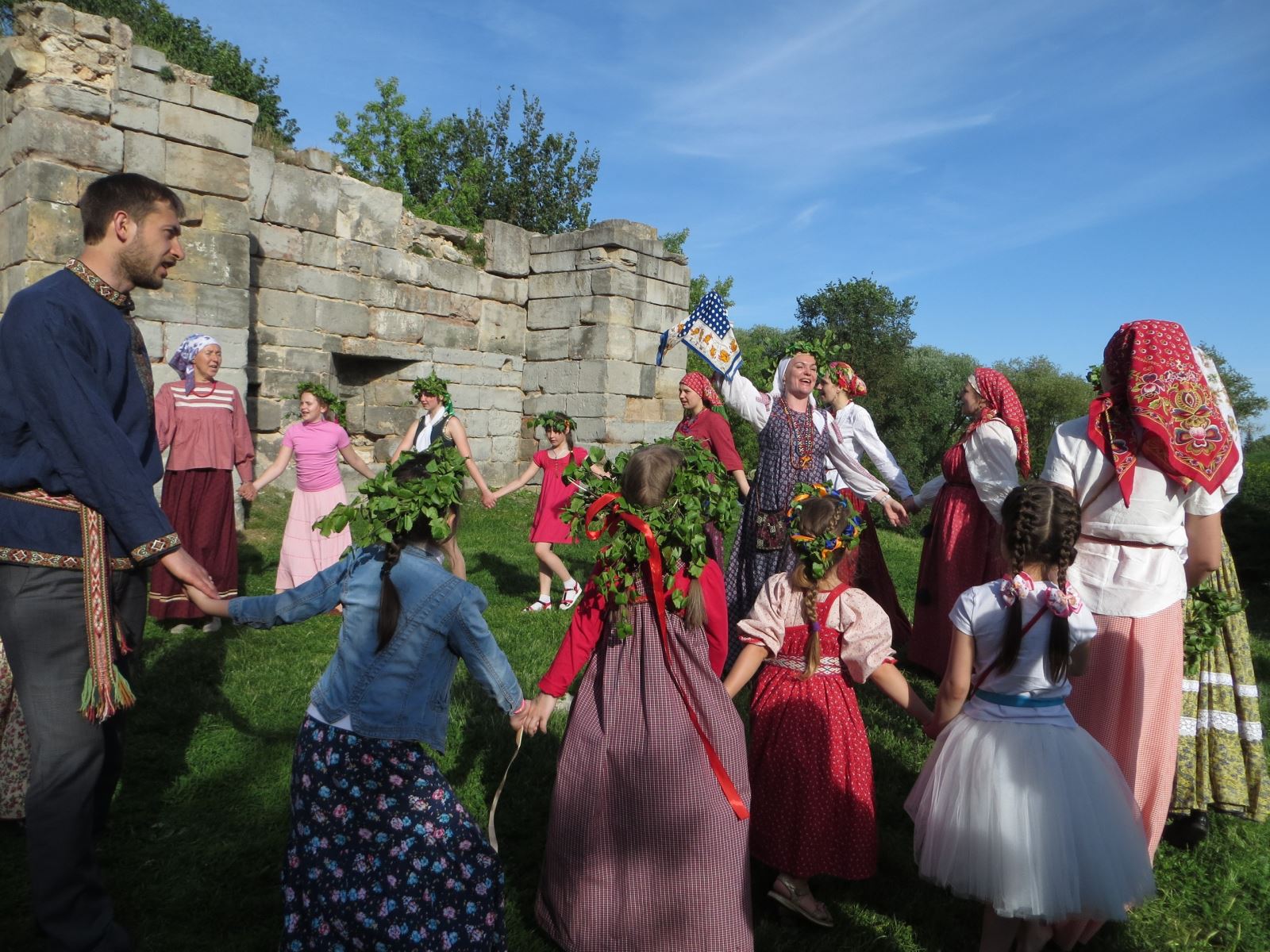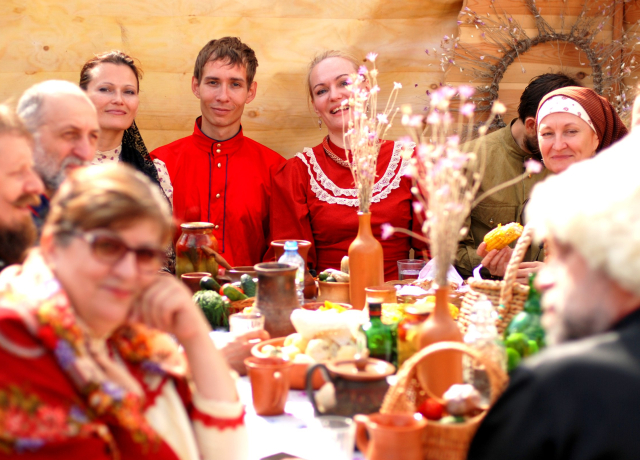European Heritage Days 2019 celebrate the role of the theatre in the Russian Federation
European Heritage Days 2019 celebrate the role of the theatre in the Russian Federation
The Theatre plays an important role in the history of Russia, and is just as important today. Its influence can be seen all over the world. Today we often turn to the work of A. Ostrovsky, A. Chekhov, to the drama school of K.Stanislavsky and V. Nemirovich-Danchenko for respite and enjoyment. The Russian ballet and opera schools occupy a special place in the art world. At the same time, there is a revival of the traditions of street theater and the performances that accompany city holidays, fairs and festivals. This tradition dates back to the 17th century, with the advent of farce.
Nowadays the rapid development of theater schools and workshops is taking place in Russia. The theatre has become a place where classical European storylines are refracted through the prism of modernity, helping us to find answers to current questions.
Tours of Russian theatre companies and theatre festivals, theatrical exchanges with European countries, are an integral part of Russian theatre culture. The recent centenary of the "Russian Seasons", a project by Sergei Diaghilev, which brought together prominent figures of the theatre, clearly demonstrates the contribution of the Russian theatre school to the common foundation of the European heritage.
European Heritage Days take center stage in Russia
The Russian Scientific Research Institute of Cultural and Natural Heritage named after D.S.Likhachev (Heritage Institute) is the national coordinator of European Heritage Days in the Russian Federation. From September 1 to October 14, 2019, thematic forums, meetings, seminars, master classes with leading theater figures of Russia, and premieres of performances will be held, as well as exhibitions, lectures, and excursions dedicated heritage.
On September, 14 the Heritage Institute and folklore ensemble “Kamyshinka” invites everyone to an interactive informative program about Russian traditional music culture. The guests will be able to get acquainted with the main genres of Russian folk music: Khorovod (roundabout dance), combat and dance songs. Perhaps, for the first time in their lives, guests will be able to experience the pearl of Russian culture - a long song. To enter the world of traditional music, visitors will be offered to walk the way from the simplest chorus to a long song, and to try to work on the sound, breath and intonation.
Culture communicated through folklore
 "Folklore is not only a passing phenomenon, but also a returning one" (E. Alexeev). The folk song is not created for performance from a scene, it is a part of an everyday life. The folk song blossoms only in a situation of live communication, during the universal participation in its performance. It does not imply a division into performers and listeners. Because folklore is, first of all, a language, a means of communication.
"Folklore is not only a passing phenomenon, but also a returning one" (E. Alexeev). The folk song is not created for performance from a scene, it is a part of an everyday life. The folk song blossoms only in a situation of live communication, during the universal participation in its performance. It does not imply a division into performers and listeners. Because folklore is, first of all, a language, a means of communication.
Modern urban life is very different from traditional life, and it is difficult to find a space for folklore songs.The main aimof the folklore ensemble "Kamyshinka" is to keep these songs alive. To practice and study them as a phenomenon in the conditions of a metropolis. And then, when the village will revive and will be ready to accept the folk song, to pass it to the places of its original existence. But to pass it on alive, not in archived form.
.jpg) In modern cities songs exist in a modified and artificial form. The folklore ensemble "Kamyshinka" continues to bring people together to make song: they organised a weekly evening meeting, a meeting of friends, where they sing songs over a cup of tea. This kind of meeting is necessary to ensure the most important principle of tradition transmission: education should take place directly in a situation of full artistic performance and in the holiday atmosphere.
In modern cities songs exist in a modified and artificial form. The folklore ensemble "Kamyshinka" continues to bring people together to make song: they organised a weekly evening meeting, a meeting of friends, where they sing songs over a cup of tea. This kind of meeting is necessary to ensure the most important principle of tradition transmission: education should take place directly in a situation of full artistic performance and in the holiday atmosphere.
The folklore ensemble goes through an annual calendar cycle filled with folk and church holidays and rituals, organize family and city holidays, travel on expeditions, conduct a huge amount of educational work on the streets of the city.
The Heritage Institute and folklore ensemble “Kamyshinka” invite you to visit them in the historical chambers of Averkia Kirillov, which are located in the heart of Moscow, and immerse yourself in the world of traditional Russian music. The participants of the ensemble together with the visitors of the seminar will pass the main stages of entering the world of traditional songs from the simplest chorus to the pearl of folk culture - a long song. In the process of passing the stages, participants work together on the open folk sound, breathing and intonation. In the second part of the meeting they will proceed to Khorovod (roundabout) and dance songs.
You can find out more about this years programme of European heritage Days in Russia here.
